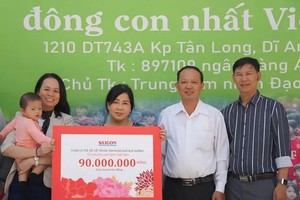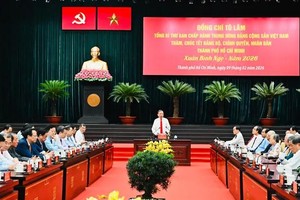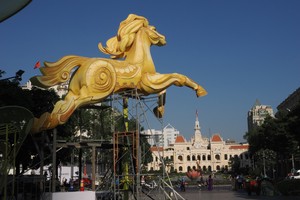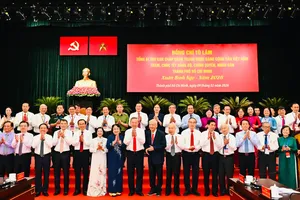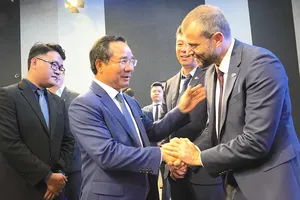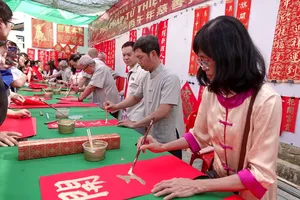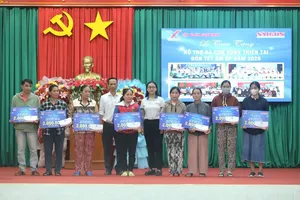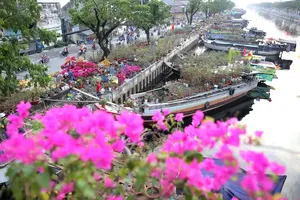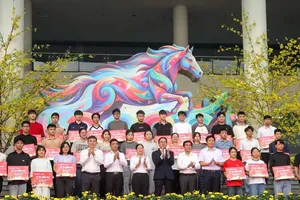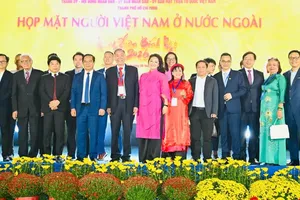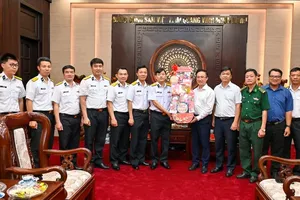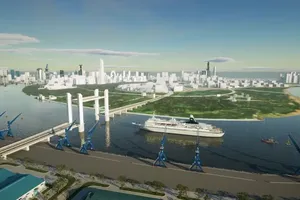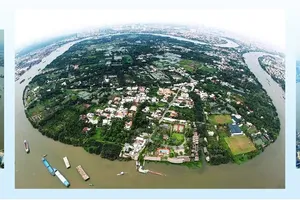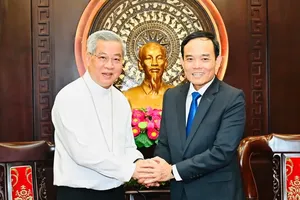Representatives of foreign business associations in Vietnam have praised the potential of the merged mega-urban model and expressed a strong aspiration to accompany the development journey of the new Ho Chi Minh City.
An attractive investment destination
As one of the largest business organizations in Vietnam, the American Chamber of Commerce in Vietnam (AmCham) has over 550 corporate members and more than 2,000 business representatives.
Mr. Travis Mitchell, Executive Director of AmCham Vietnam in Ho Chi Minh City shared that the administrative restructuring in Ho Chi Minh City presents a unique opportunity for significant potential of development and investment.
The American business community expressed confidence in a leaner and more responsive government apparatus, as well as simplified tax and customs procedures to streamline export processes, improve efficiency, and reduce operational costs.
Moreover, better integration of port infrastructure and logistics networks will be likely to strengthen the supply chain which is a critical factor for improving competitiveness.
The Executive Director of AmCham Vietnam in Ho Chi Minh City expressed confidence that the new Ho Chi Minh City would foster a more transparent, business-friendly environment, helping to boost partnerships, enhance regional cooperation, and create long-term value for all stakeholders.
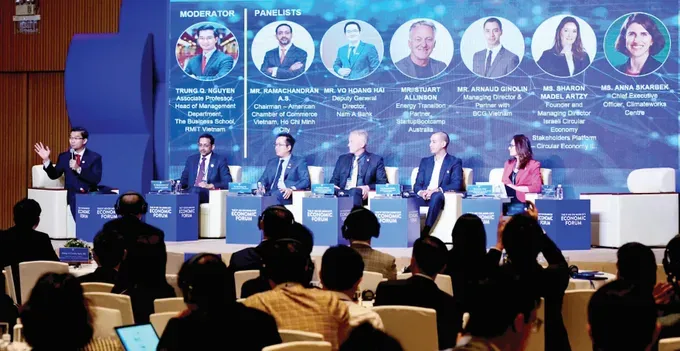
Meanwhile, Mr. Thibaut Giroux, President of the French Chamber of Commerce and Industry in Vietnam (CCIFV), noted that CCIFV members are active in strategic sectors aligned with the new Ho Chi Minh City’s priorities.
In the health sector, firms like Sanofi and Biocodex have supported local production and healthcare access.
As for infrastructure service and industry, Aden Services and Idec Group Asia are actively supporting the modernization of manufacturing facilities and complex asset management.
Regarding transportation and urban planning, Artelia is involved in sustainable planning projects and urban mobility solutions.
The President of the CCIFV suggested organizing business missions to France to promote new opportunities and encouraging on-site visits to Vietnam, particularly to high-potential areas like Con Dao, which is being developed as a major tourism center.
Sustainable development commitments
The United Kingdom is showing strong interest in the new Ho Chi Minh City.
According to Consul General Alexandra Smith, British companies are actively contributing in key sectors. Among them, AstraZeneca has pledged US$360 million by 2030, while GSK, Reckitt and TPP are expanding healthcare solutions.
UK expertise has supported offshore wind planning, green finance and net-zero strategies. Institutions like the HSBC, Standard Chartered and Prudential have been actively engaging in sustainable finance and inclusive growth.
Demand for UK-standard education is rising as numerous institutions like British University Vietnam, Oxford University Press, the Association of Chartered Certified Accountants (ACCA) and the Institute of Chartered Accountants in England and Wales (ICAEW) and so on are expanding their presence in Vietnam.
British brands such as Dyson, Jo Malone and Mini Cooper are increasingly popular. UK firms also provide trusted legal, design and consulting services for major infrastructure projects.
The UK Government has recently launched a bold 10-year Modern Industrial Strategy, promoting innovation and global investment, inviting collaboration with trusted partners like Vietnam.
Currently, seven out of eight priority sectors in the UK’s Modern Industrial Strategy are already present and thriving in the UK–Vietnam trade relations.
Additionally, the UK Export Finance (UKEF) agency has allocated up to £5 billion (US$ 6.86 billion) to support projects in Vietnam, unlocking new deals in energy, infrastructure and transport, especially in key areas of the new Ho Chi Minh City.
The Japanese Business Association of Ho Chi Minh City (JCCH), the third-largest globally after Shanghai and Bangkok, now has 1,077 member companies as of June 2025, highlighting Japan’s strong interest in Southern Vietnam, especially Ho Chi Minh City.
By the end of 2024, Japan ranked third among 127 countries investing in Ho Chi Minh City, with a total capital of US$8.53 billion. In 2024 alone, the country was the second-largest investor with 103 projects worth US$87.5 million.
Key Japanese-supported projects like Metro Line No.1, Cho Ray Hospital, and water environment improvement projects in the Tau Hu–Ben Nghe and Doi–Te canal basins are helping modernize infrastructure and boost Ho Chi Minh City’s growth.
In addition to promoting trade and economic ties, the Japanese Chamber of Commerce and Industry in Ho Chi Minh City (JCCH) actively contributes to social initiatives through various projects such as waste collection, gift-offering visits to children at welfare centers, and cultural exchanges with Vietnamese students.
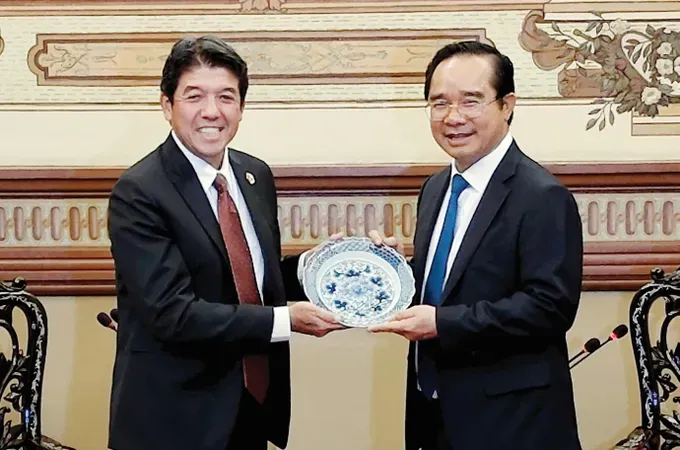
With new opportunities for Ho Chi Minh City and both domestic and international businesses, Mr. Kume Kunihide, Chairman of JCCH, shared that this historic merger would be expected to contribute to enhancing administrative efficiency and policy implementation, fostering sustainable economic growth in Southern Vietnam, improving people's livelihoods, and further strengthening the Comprehensive Strategic Partnership between Vietnam and Japan.
